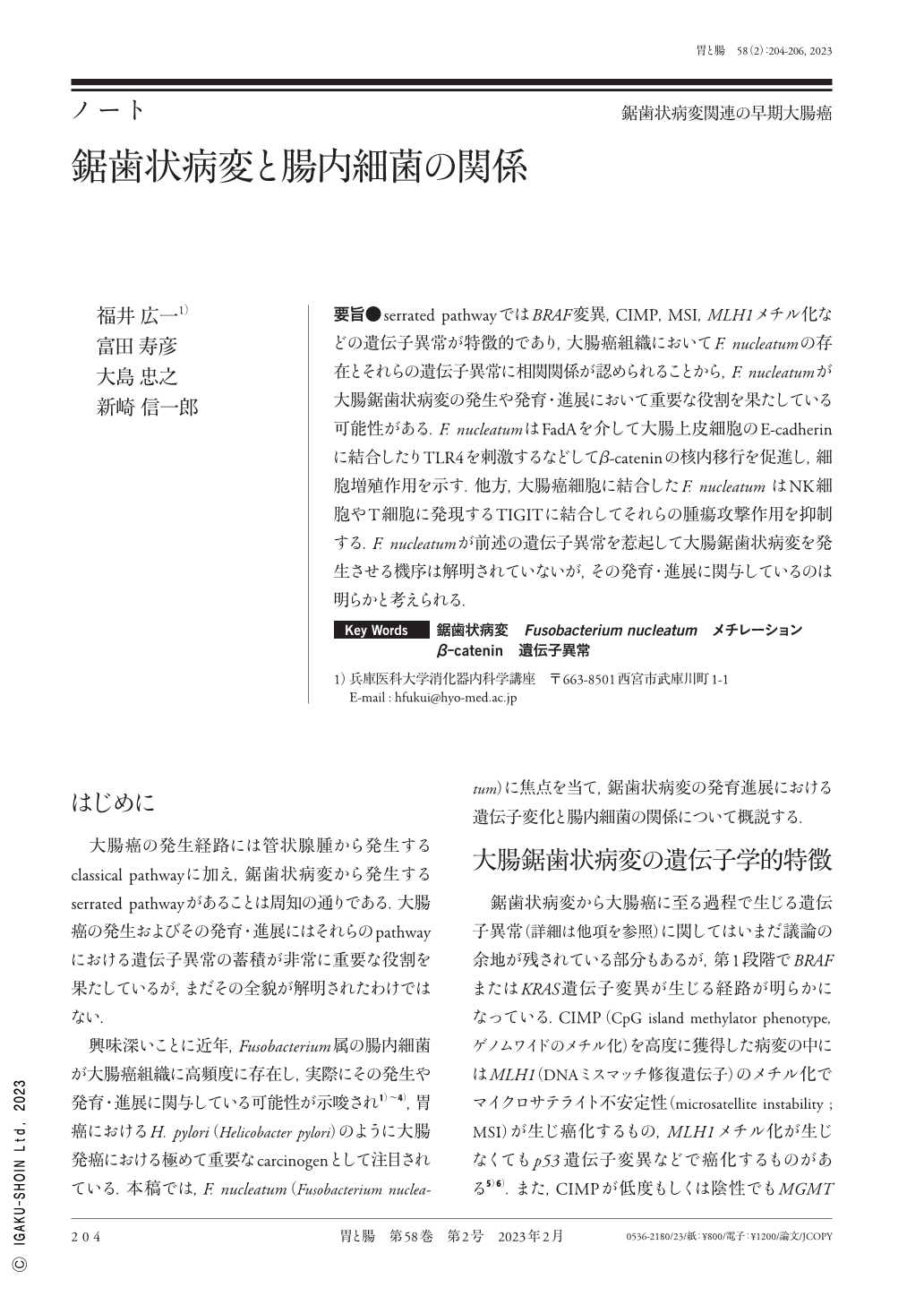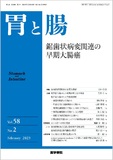Japanese
English
- 有料閲覧
- Abstract 文献概要
- 1ページ目 Look Inside
- 参考文献 Reference
要旨●serrated pathwayではBRAF変異,CIMP,MSI,MLH1メチル化などの遺伝子異常が特徴的であり,大腸癌組織においてF. nucleatumの存在とそれらの遺伝子異常に相関関係が認められることから,F. nucleatumが大腸鋸歯状病変の発生や発育・進展において重要な役割を果たしている可能性がある.F. nucleatumはFadAを介して大腸上皮細胞のE-cadherinに結合したりTLR4を刺激するなどしてβ-cateninの核内移行を促進し,細胞増殖作用を示す.他方,大腸癌細胞に結合したF. nucleatum はNK細胞やT細胞に発現するTIGITに結合してそれらの腫瘍攻撃作用を抑制する.F. nucleatumが前述の遺伝子異常を惹起して大腸鋸歯状病変を発生させる機序は解明されていないが,その発育・進展に関与しているのは明らかと考えられる.
The colonic serrated pathway is characterized by genetic abnormalities like BRAF mutation, CIMP(CpG island methylator phenotype), MSI(microsatellite instability), and MLH1 methylation. The presence of F. nucleatum(Fusobacterium nucleatum)is significantly correlated with those genetic abnormalities in colorectal cancer tissues, implying that F. nucleatum is likely to play a crucial role in the development/progression of serrated lesions. F. nucleatum can bind E-cadherin with FadA protein and moreover, stimulate TLR4 on colonic epithelial cells, activating nuclear translocation of β- catenin and promoting cell proliferation. However, F. nucleatum attaching colon cancer cells can bind TIGIT(T cell immunoglobulin and immunodominant tyrosine-based inhibitory motifs)on NK and T cells, preventing such cancer cells from being attacked by those immune cells. The mechanism by which F. nucleatum initiates serrated lesions above genetic abnormalities is still unknown. However, it is evident that F. nucleatum plays a role in the progression of serrated lesions.

Copyright © 2023, Igaku-Shoin Ltd. All rights reserved.


